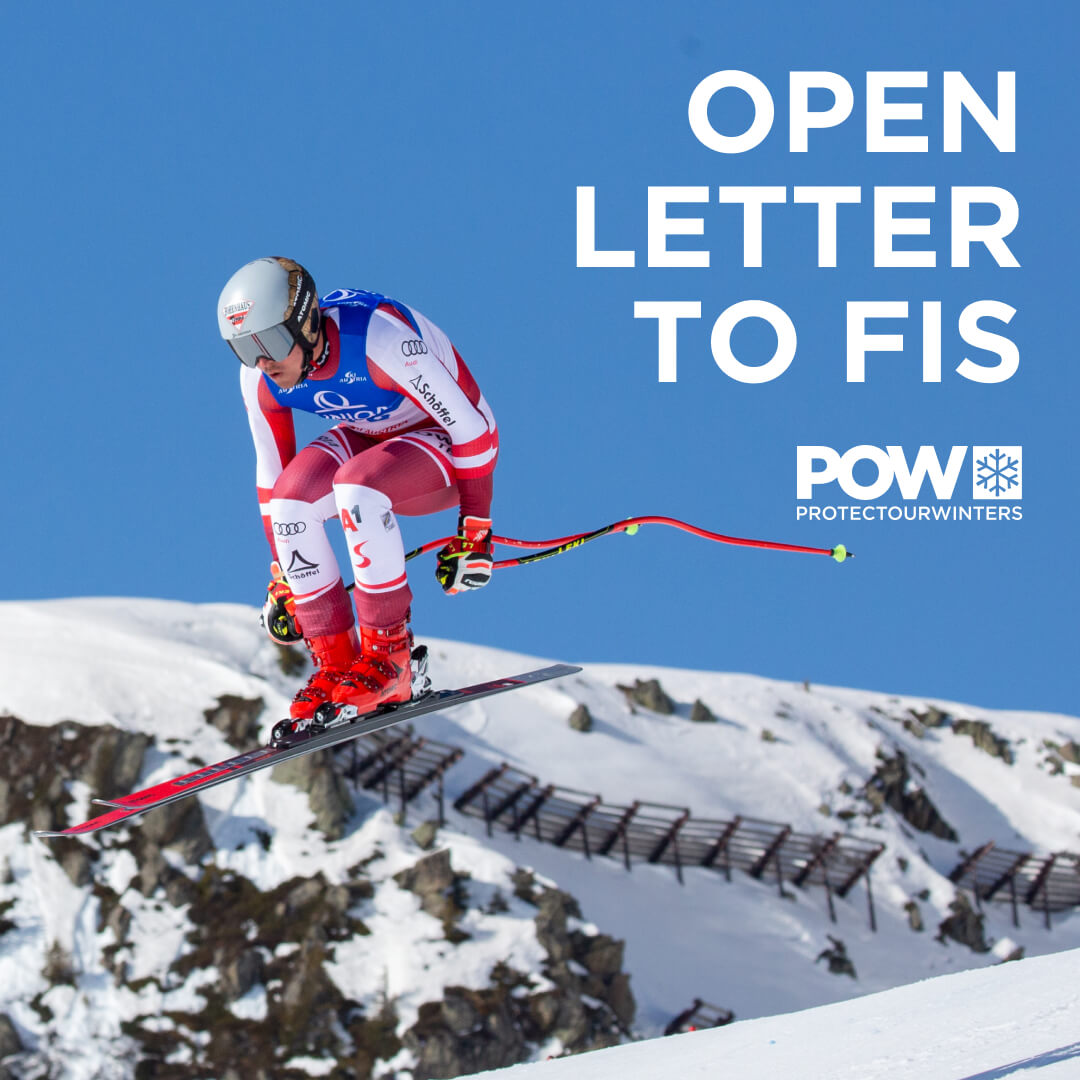The world of competitive Snowsports is feeling the impact of climate change right now. With competitions being cancelled due to extreme weather events or lack of snow, pre-season training slopes becoming less available and increased injury rates due to poor quality, or absence of, natural snow (1) at competition sites. A new study shows that all but one of the previous 21 host cities, Sapporo, Japan, will be too warm and dry to host a safe, fair Winter Games by 2080 if we continue on the current emissions path. (1).
This loss of snowpack affects far more than our winter sports activities. Severe and unmitigated climate change could see mountain glacier ice and snow that existed in 2015 reduced by up to 80% by 2100. Putting at risk the 1.9 billion people that rely on snow or glacier melt water for their water supply (2).
FIS (Féderation Internationale de Ski) is the international ski federation and thus a globally active organisation. In addition to Alpine skiing, the FIS also control sports such as freeride, snowboarding, telemark, all Nordic sports and several others. FIS has come a long way since the presidential position was held by a climate denier. However, many feel its action on climate are too slow and too limited to match the scale of the issue, and that the actions it has taken are both overly reliant on offsets and lack the required transparency to be a leader on climate action. Questions have been raised around Mr Eliasch’s joint role as both FIS President and co-chair of Cool Earth (the organisation FIS has partnered with) as to the transparency and ease of public access to information of how its offsets are calculated.
Rising Austrian skiing star, FIS athlete, and Protect Our Winters Ambassador Julian Schütter has penned an open letter demanding action from FIS including:
● FIS representatives must commit to reaching net-zero for all of FIS operations and events by 2035 or prior.
● FIS has to create a sustainability strategy of how to achieve the 50% emissions reduction by 2030, as committed to through the UN Sports for Climate Action framework and present it to the public before the start of 2024 season.
● FIS has to install a sustainability department that ensures that sustainability becomes a key aspect of all governance processes and operations, which must be controlled and certified by an independent organization.
● Full transparency is needed to back up FIS‘ role as a much needed pioneer.
Read the whole letter and see the list of signatories
The letter was delivered to FIS at a press conference in Courcheval following the Men’s Downhill Finals, at 4pm on the 12th February. So far it has received over 170 signatures from concerned present and previous FIS competitors, including current alpine racing mega stars Mikaela Shiffrin (USA), Aleksander Aamodt Kilde (NOR), Travis Ganong (USA) along with Olympic cross-country skiing champion Jessie Diggins (USA), and the previous Freeride World Tour champions Arianna Tricomi (ITA) and Xavier de le Rue (FRA). The letter remains open for signatures, and these are coming in thick and fast.
Main image credit : Hans Peter Steiner
(1) Daniel Scott, Natalie L. B. Knowles, Siyao Ma, Michelle Rutty & Robert Steiger (2023) Climate change and the future of the Olympic Winter Games: athlete and coach perspectives, Current Issues in Tourism, 26:3, 480-495, DOI: 10.1080/13683500.2021.2023480
(2) Bethan Davies, Senior Lecturer in Glaciology, Royal Holloway University of London.
https://theconversation.com/the-worlds-mountain-water-towers-are-melting-putting-1-9-billion-people-at-risk-128501
(3) https://greensportsblog.com/intl-ski-fed-prez-denies-climate-change/

